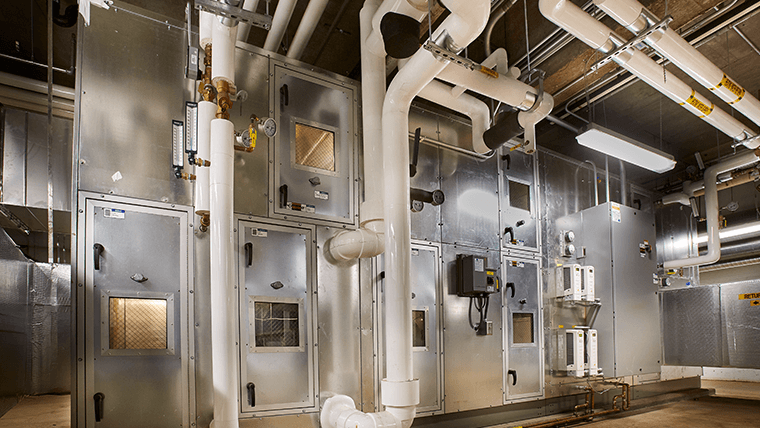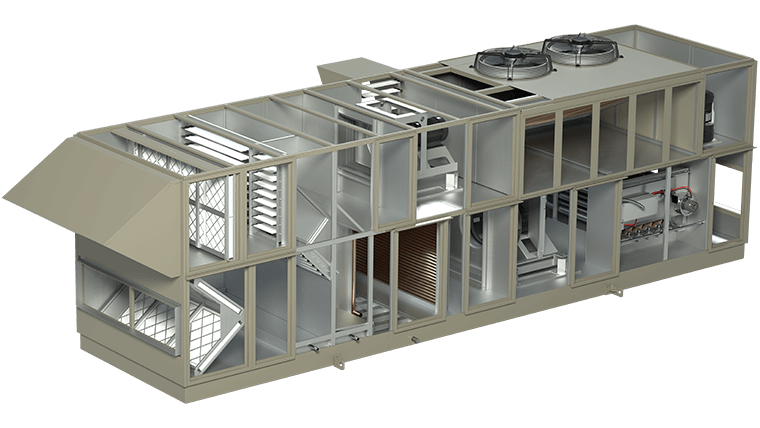

NATATORIUMS
OUTDOOR AIR VENTILATION MOST EFFECTIVE AT REMOVING CHLORAMINES
Healthy and durable indoor pool environments require a well-designed ventilation system with effective air distribution and sufficient outdoor and exhaust air to remove toxic and corrosive chloramines from the space. A key question for system designers becomes: How much outdoor air is required? Minimum levels are defined in ASHRAE Standard 62.1 but there is substantial evidence that increasing the amount of outdoor air can lead to improved indoor air quality by more effectively diluting and flushing out the chloramines that prevalently gather above the pool water and migrate into general swimmer and spectator areas.
Removing chloramines is the goal! Most swimming pools are treated with chlorine. When chlorine binds to water contaminants, it forms chemicals such as dichloramine and trichloramine. Chloramines that off-gas from the water are heavier than air. This means they settle on top of the water’s surface where they create a respiratory health hazard for all pool occupants. Delivering fresh air to the breathing zones of swimmers, people on deck and spectators is key to creating a healthy indoor climate.

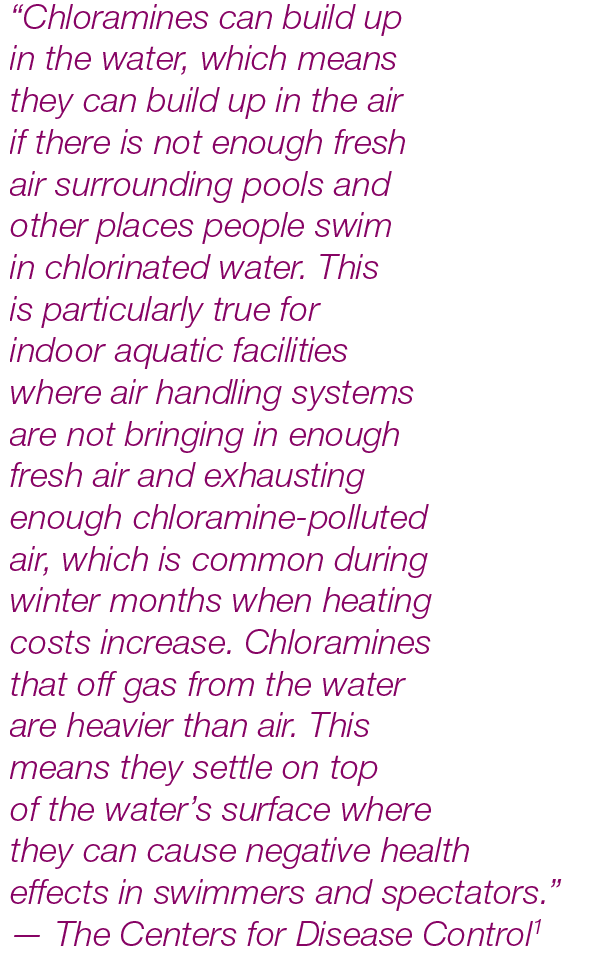
NATURAL DEHUMIDIFICATION REDUCES OPERATING COSTS
Indoor aquatic facilities are energy-intensive spaces that require the consideration of many variables in the design phase. Energy consumption is increased when the space is completely dependent on mechanical cooling for dehumidification. Because pool spaces are, by design, warm and humid throughout all seasons, using naturally dry outdoor air to dehumidify the space reduces the need for mechanical cooling. More natural ventilation and less mechanical cooling for most of the year significantly reduces energy consumption and costs.
With thoughtful design, and an increased use of outdoor air, indoor aquatic facilities can be both healthy and energy efficient.
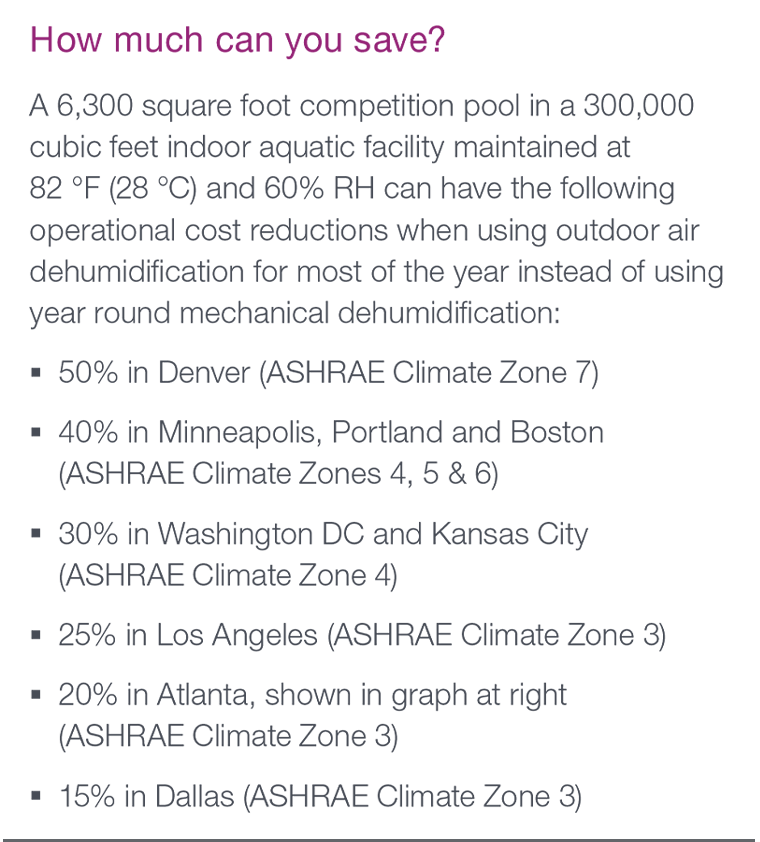
Total Operating Costs, Indoor Aquatic Facilities, in Climate Zones 3-7
The text above describes total operating costs for the same aquatic facility when located in Climate Zones 3 through 7.
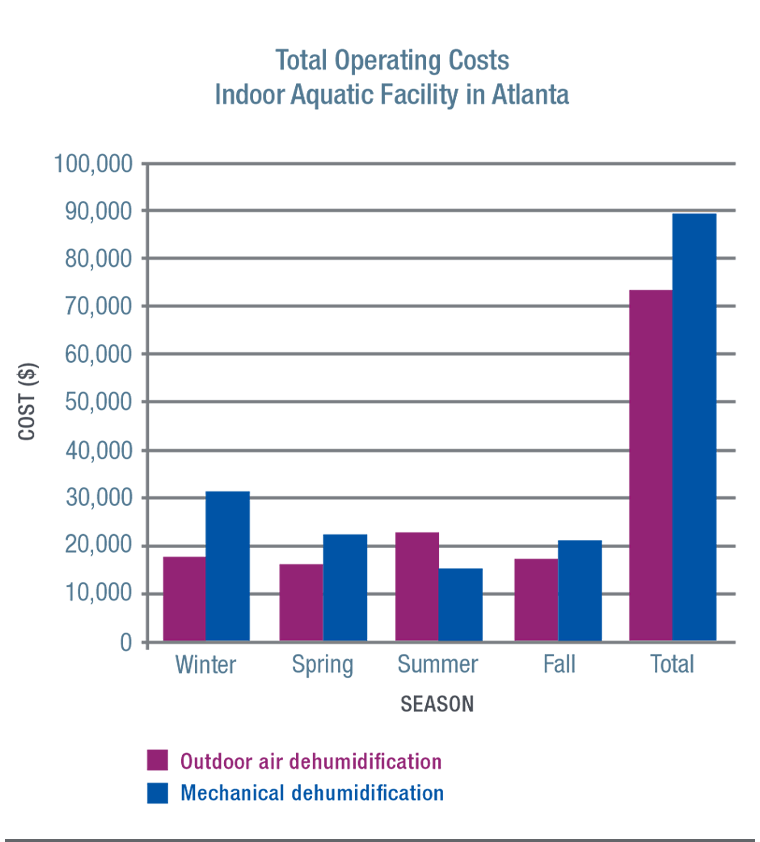
Total Operating Costs, Indoor Aquatic Facilities, in Climate Zones 3-7
The chart above describes the total operating costs of an indoor aquatic facility located in Atlanta, GA, and includes costs for air heating, pool water heating, dehumidification, and fan motors.
CORROSION RESISTANT CONSTRUCTION EXTENDS EQUIPMENT LIFE
Chloramine-polluted air is acidic and corrodes stainless steel alloys (including 316) and carbon steel, which can cause equipment and structural deterioration. Removing chloramines from the space certainly mitigates the risk of degradation. Choosing products with aluminum construction extends equipment life even further. Look for:
- Aluminum interior walls, flooring, drain pans and dampers
- Corrosion-resistant coating on all heating and cooling components exposed to the pool air stream
- Energy recovery devices with all aluminum construction
- High efficiency, AMCA-certified direct drive fans with aluminum wheels and TEFC motors.
